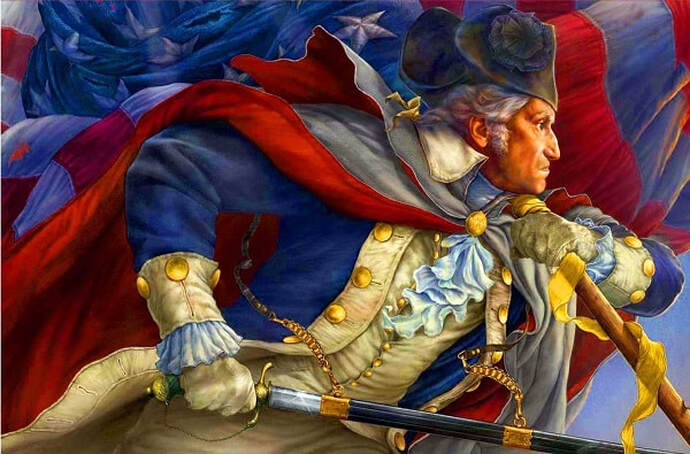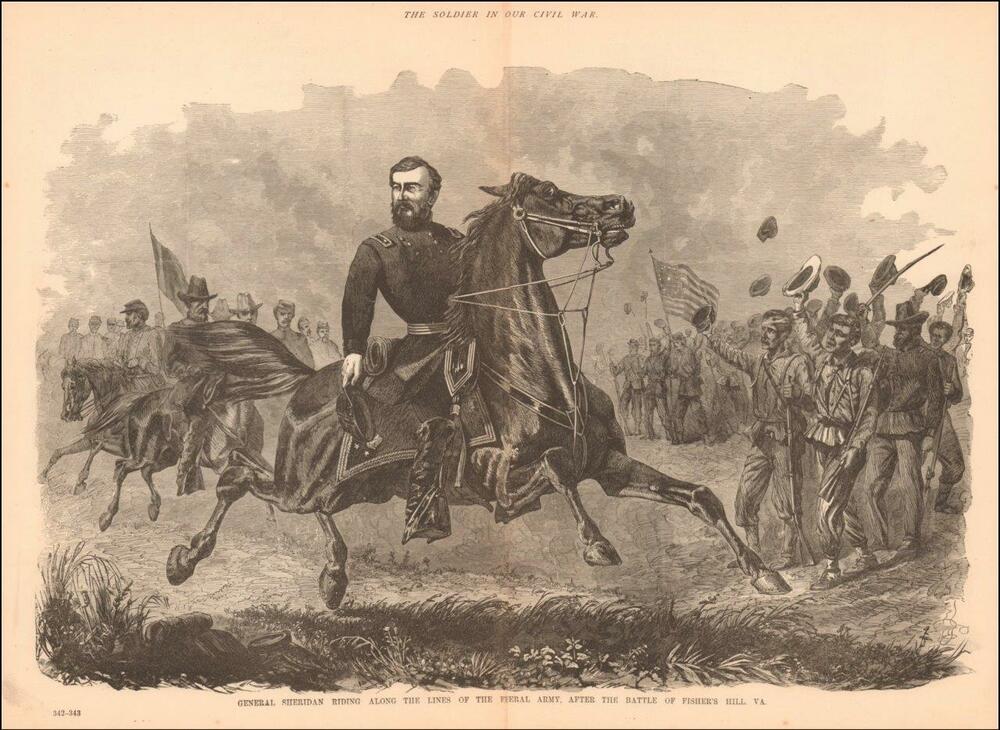The Great Men of HistoryAs George Washington, “The Father of His Country,” fades into the mists of history along with the voluntary Union of sovereign States, Abraham Lincoln, dominating the Washington Mall in his Olympian Temple just as his Empire dominated Washington’s Republic in 1865, has been anointed “The Great Man of American History.” What part does the so-called “Great Man” play in history and cultural evolution? The answer is double-edged, for it requires an understanding of the distinction between the temporal process of “history” (“a chronological series of events each of which is unique”) and the temporal-formal process of “evolution” (“a series of events in which both time and form are equally significant: one form grows out of another in time.”) (1) G. W. F. Hegel defined the Great Men of History as the “World-Historical Persons whose vocations it was to be the Agents of the World-Spirit.” (2) If the “World-Spirit” is deduced here as being the impulse of evolution towards the culmination of its pattern, then we must look to this distinction between history and evolution to place the Great Man in his proper context. The course of history – being a temporal process of unique events – can be determined as much by, say, the random act of an idiot or by Missus O’Leary’s cow as by the deliberate act of a Great Man. The course of evolution, on the other hand, is a different matter. While we may hope that the course of history determined by the act of the Great Man is different from that determined by the act of a particular cow or a particular idiot, neither he nor they can determine or control the course of cultural evolution. What the Great Man can do and does do, however, is to ride the crest of evolution as a navigator or a pilot and obey the imperatives of his culture, an “unconscious impulse that occasion(s) the accomplishment of that for which the time (is) ripe.” (3) This is what distinguishes him from Missus O’Leary’s cow. But it is not enough for him only to be a man of great capacity; he must also have a crest to ride. He must live in conjunction with, and respond to, the culmination of a cultural pattern of evolution; otherwise he will be lost in obscurity. These “World-historical-men,” therefore, are world-historical because they “met the case and fell in with the needs of the age.” (4) The man, then, does not determine the age; it is the age that calls forth the man. Had Abraham Lincoln been born ten years earlier or ten years later, America might never have heard of him. Great Men and the Age of the Machine:Abraham Lincoln rode the crest of the Industrial Revolution in America, a revolution that transformed an age that had begun when Adam and his sons stepped out of the Garden of Eden and learned the domestication of plants and animals. The Age of Agriculture ended in the nineteenth century with the development of technology that could effectively harness solar energy from fossil fuels. With this revolution, steam power replaced muscle power as the prime mover of civilization, and the Machine Age was born roaring. The amount of energy harnessed by the Industrial Revolution and the efficiency with which it was put to use increased exponentially as technological evolution synthesized, resulting in the rapid growth and the increasing complexity of social structures to orchestrate it all. As the means and the efficiency of harnessing the free energy of the cosmos increased, populations in the industrializing cultures doubled and in some cases nearly tripled during the nineteenth century. The rural, aristocratic, agrarian feudal system became obsolete and was replaced by an urban, parliamentary, production-for-sale-at-a-profit economy, while the ideologies, values, beliefs, morals and myths of the industrializing cultures evolved apace to justify it all. With the great increase of population and cheap labor, and with the increasingly complex demands of industrialism, slavery and serfdom were found to be inefficient labor systems and they were abolished. While the basic dichotomy of the class structure remained, the composition of these classes underwent radical change. As Leslie A. White says: “Industrial lords and financial barons replaced the landed aristocracy of feudalism as the dominant element in the ruling class, and an urban, industrial proletariat took the place of serfs, peasants, or slaves as the basic element in the subordinate class. Industrial strife took the place of peasant revolts and uprisings of slaves and serfs of earlier days.” (5) White makes an interesting observation of cultural evolution and its technological determinant: as culture evolves the rate of growth is accelerated. As technology synthesizes at an ever-increasing pace in our day, culture, like cancer, is metastasizing – but whether into a single global state or into a state of global frenzy remains to be seen. Meanwhile, we have unlocked the energy of the atom, and again a new revolution is upon us, this time superimposed upon the old. In addition, with the evolution of digital technology, of the internet, of the ubiquitous hyperventilating of the media dunning us day-in and day-out, and of the instant global communications between everyone from kings, priests, and tyrants, to radicals, peasants, and demagogues, social structures are being radically transformed all over the world. Whether this new wine can be contained in an old wineskin remains to be seen. We are indeed “riding the stream of Time,” as Bismark said (6), but any claims of control over it are sounding increasingly more like an anthropocentric whimper. This realization should not be taken as defeatist. If we are discovering that we cannot control the course of evolution, then we must learn to adjust to it the way a sailor must adjust to the weather and to the conditions of the sea – conditions that he cannot control. In order to adjust to the course of evolution we must learn to predict it like we predict the weather, and, with the experience of a seasoned pilot, learn to “read the river” for its rocks and shoals, its tides and its currents. To predict the course of evolution, a study of the history of those who have ridden this “River of Time” before us is necessary. And as the accurate marking of channels and hazards is vital if our river chart is to be worth anything, then we must sift history for the Truth. Only then – and with an attitude of humility before the might of the Infinite - may we hope to become successful pilots, like the Great Men of History. Notes
1 Comment
Fisher’s Hill, a veritable fortress stretching across the Valley westward from the Massanutten – is a good place to rally from the good fight with Sheridan, whose cavalry alone outnumbers Early’s entire army. But a flank march through the woods on the mountain to the left breaks out and rolls up the lines. Ragged, starving, and lice-infested prisoners of war are packed into a long train of wagons and galloped all night down the Valley Pike to Winchester for fear of Mosby’s men. A doctor volunteers his services in “the war to make the world safe for democracy,” but he is not needed there because he has a family, and his services are more needed at home. A surgeon makes three invasions, and, building shelters for his wounded with pine boughs in the snow, refuses orders to withdraw from the Hertgen Forest and is killed by artillery fire while helping to carry a stretcher. An Infantry officer in Burma helps to repel an attack at night, and attackers fall at his shots. “Oh, no, son. You mustn’t say that. That man may have had a little boy just like you waiting for him to come home.” An Engineer officer in Vietnam, riding in a jeep and escorting a crippled bulldozer on a lowboy through a village near twilight, meets a man by the side of the road in a conical peasant’s hat, shorts, open shirt, barefooted, and feet planted solidly into the ground. For a moment their eyes meet – the eyes of the rash, parvenu West, the energy of the bright and lusty cities clamoring day and night for more steam, more steel, more trade, more wealth, and more power looking into the eyes of the eternal East, the blade of grass that pushes up through the cracked-pavement entropy of mean streets and litter-strewn alleyways, of desolate factories and drug-plagued ghettoes, of gang wars in crumbling concrete wastelands, the patient blade of grass that waits like the grave for its victory. The East does not blink, and Sheridan’s cavalry passes on. A deadly drone strike against civilians caps a withdrawal from Afghanistan, “The Graveyard of Empires.” |
AuthorA native of Lynchburg, Virginia, the author graduated from the Virginia Military Institute in 1967 with a degree in Civil Engineering and a Regular Commission in the US Army. His service included qualification as an Airborne Ranger, and command of an Engineer company in Vietnam, where he received the Bronze Star. After his return, he resigned his Commission and ended by making a career as a tugboat captain. During this time he was able to earn a Master of Liberal Arts from the University of Richmond, with an international focus on war and cultural revolution. He is a member of the Jamestowne Society, the Society of the Cincinnati in the State of Virginia, the Sons of Confederate Veterans, and the Society of Independent Southern Historians. He currently lives in Richmond, where he writes, studies history, literature and cultural revolution, and occasionally commutes to Norfolk to serve as a tugboat pilot Archives
July 2023
|


